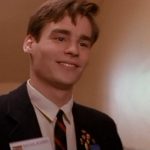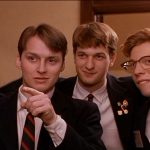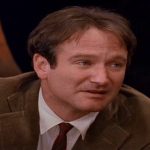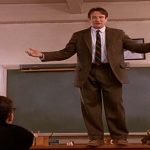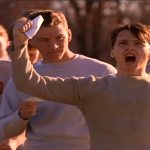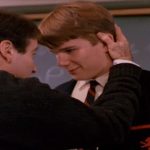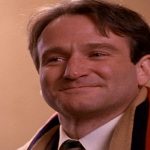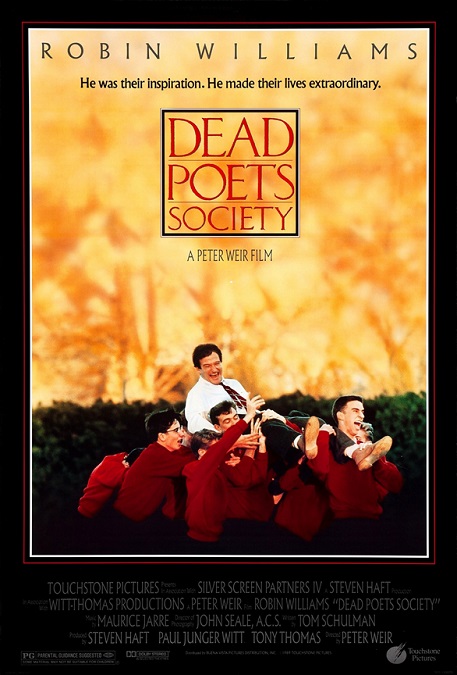
Dead Poets Society – 1989
This was a very good movie on multiple levels. When one thinks of the film, the first name that might come up is Robin Williams, and he certainly played a pivotal role. But the movie really had an ensemble cast. It could almost be argued that either Ethan Hawk or Robert Sean Leonard played the lead. The movie dealt with some very serious issues like the concept of living your life to the fullest, not conforming to the norms of society, being a free thinker in order to “suck the marrow of life.” It also dealt with the incredible pressures that are forced upon young men to excel in school, or in other words, to live up to the unreasonable expectations of their parents.
On another level, the film might almost be called a coming of age movie. It follows the spiritual enlightenment of a group of young boys attending the prestigious Welton Academy, an all-male prep boarding school in Vermont. The school firmly believes in tradition, discipline, and hard work. In all honesty, it is a school with wonderful core values. But the film’s main drama comes not from the teachers, but the parents who cruelly treat their sons like possessions instead of human beings.
Robert Sean Leonard plays Neil Perry, a student at Welton who is a fine and upstanding boy, and a dutiful son with a thirst for knowledge. He, like any normal young man, longs for independence, a privilege he enjoys whenever his father is not around. But there’s the problem. His father, played by Kurtwood Smith, is an overbearing disciplinarian who has absolute control over his son. He has his boy’s entire scholastic life planned out for him. He tells him what classes and what extracurricular activities he will take.
Never once does Mr. Perry take into account what Neil, himself, actually wants. He is so strict that he belittles and threatens Neil in front of his friends, using guilt to force him to submit to his every command. “I’m only trying to give you all the opportunities I never had,” or “You know how much this means to your mother.” Even though Neil gets straight As he callously tells Neil to quit working on the school paper, something Neil enjoys because he has decided that it is a distraction from Neil’s other studies. I focus on this subplot only because it was the most difficult one for me to watch, so much did I hate the character of Mr. Perry.
But the main plot involves Robin Williams playing Mr. Keating, an English teacher who, through his own passion for poetry, inspires the students to latch on to the phrase “carpe diem” or seize the day. Neil and his fellow students begin to act out with independence, each with varying degrees of success. Ethan Hawke plays painfully shy Todd Anderson, who has the soul of a poet, and though it is hard to tell, I think the entire movie was really told from his perspective.
Also in the Dead Poets Society, a club made up of the boys in Mr. Keating’s class, is Knox Overstreet, played by Josh Charles, who is inspired to pursue the girl he falls in love with, Chris Noel, played by Alexandra Powers. Gale Hansen plays Charlie Dalton, the wild one in the Society, who is inspired to rebel by publishing an unauthorized article in the school newspaper, suggesting that girls be allowed to attend the school. For this he is rewarded with physical punishment, administered by the school’s headmaster, Gale Nolan, played by Norman Lloyd.
The story is powerful and, yes, at the risk of overusing the word, inspiring. But it is also very hard to watch. The film has two climaxes. The first is when Neil, who has finally had enough of living under the cruel and uncaring boot heel of his father, commits suicide. The second, is when Mr. Keating, who is blamed for the suicide, is fired, and the boys of the Dead Poet’s Society, stand up on their desks, and acknowledge that they do not believe he is responsible. Headmaster Nolan wants him to leave in shame, but because of the students, he is able to leave with a certain amount of dignity and pride.
William’s performance was wonderfully restrained. True, most of what the actor is known for is his wild and off-the-wall comedy, but he never fails to turn in incredibly powerful dramatic performances like 1982’s The World According to Garp, and 1997’s Good Will Hunting. He was an incredibly intense actor, whether he was playing comedy or drama. But the boys all gave good performances as well, not just Leonard and Hawke.
And lastly, I have to mention the film’s beautiful cinematography and its score. While neither was nominated for any awards, the filming locations, the late 50s period aesthetics, and the wonderful soundtrack by Maurice Jarre all combined to make the movie fantastic, a feast for both the eyes and the ears. Even though I wasn’t born until 1973, nor was I ever a part of an elite scholastic society, I almost felt nostalgic for a place like Welton Academy in 1959. Or maybe it was just my own experiences of being a young man, full of potential. Either way it was very effective film-making.
